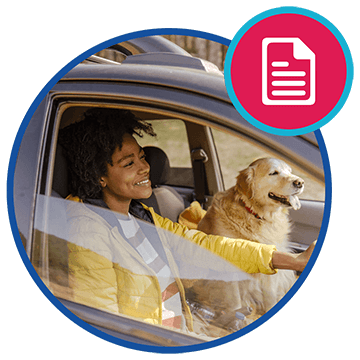Okay, we all get it, electric vehicles are all the rage as a result of environmental concerns and the need for zero-emission vehicles, plus soaring gas prices in Canada. If you are like most Canadians who drive, you cringe as you roll up to a gas station, and no doubt you’ve seen the memes circulating around about window shopping at the pumps because it’s as if buying gas is only for the elite and not a requirement of driving a vehicle.
Yes, Tesla is not the only electric vehicle on the market anymore, but you can’t argue that it is one of the most sought-after electric cars - now SUVs as well. The cost to purchase one is up there and ranges depending on which Tesla model you are after, but the question is, does the fuel cost-savings make the purchase price justifiable, which brings us to the topic, how much it costs to charge a Tesla in Canada?
Big Differences
Obviously driving an electric vehicle has one massive distinguishable difference from a gas car; it runs on electricity, whereas (duh) a gas engine runs on gas. There are other differentiators that must be considered when switching to an EV. From a convenience perspective, there are nowhere near as many public charging stations as there are gas stations, especially if you live in more remote parts of the country. In addition to there not being as many EV charging stations, the time it takes to get a full charge must be considered. When driving a gas-powered vehicle, you simply pull up to the pump, fill the tank, and off you go in under ten minutes. Charging a Tesla isn’t so quick, and certainly not more convenient when using a charging station within Tesla’s supercharger network. This charging network can be accessed via Tesla’s app or the vehicle infotainment system.
We aren’t trying to deter you away from buying a Tesla but we want to present the facts before joining the family of EV owners. Like any big purchase, do your research to see the various Tesla models available, such as Tesla Model Y, Tesla Model X, Model 3, and others. Also research how fast each one’s battery charges, and whether it has a standard range or long range. Understanding each of the different models will help you get a better idea of the charging costs. If you know a Tesla Owner, probe them about the reality of driving one.
Home Charging Stations
It doesn’t matter what kind of research you do, every article will declare that as an EV driver, your best option for affordability is to charge your vehicle at home. When charging at your house, you are using a service you are already hooked up to, and therefore it’s an easy decision. Whereas, when you go to a public charging station which is usually fast-charging, you are paying a higher rate since you are paying for a service. Think of it like an ATM. When you go to your actual bank to take out money, they don’t charge a transaction fee since you are already a customer and paying fees. When you use a portable ATM that isn’t your bank, they want to make money via a transaction fee. Same thing as air for your tires. Why are we paying for something that we are surrounded by? It’s the convenience and machine that requires a fee.
Most Tesla owners charge their vehicle at home using a Level 2 (240 volt) home charger. Since this is not a fast charger, it takes an average of 8-12 hours to get a full charge, depending on how depleted the battery is. Depending if you live in Ontario, Quebec, Alberta, BC, or any other province, will determine the cost since electricity rates vary from province to province. For example, Ontario has different electricity costs during different parts of the day, with overnight being the lowest. The average cost to charge your Tesla at home is roughly 9.4 cents per kilowatt-hour (kWh) for the first 1350 kWh consumed, which works out to around $5-$6 per overnight charge.
Public Charging Stations
When Elon Musk invented the Tesla, he also invented the Tesla Supercharger, which (as stated above) has stations throughout Canada that can be located via the app or vehicle system. As far as the cost is concerned, it’s hard to pinpoint it exactly since every situation is different. With Tesla, there are certain models that come with a free year trial, but without that free trial, the average cost is around 26 cents per kWh.
Just because you drive a Tesla, doesn’t mean you can only use Tesla chargers, and since there are more in numbers, that’s a good thing, especially if you are heading out on a long road trip. With that said, many non-Tesla chargers will require an adapter, so plan accordingly.
The cost of using a public charging station will vary depending on the company. Some will charge per kWh, while others will charge per minute; either way, you’re looking at around $20/charge at a public station. In BC, as of April 2022, BC Hydro charging stations had a cost breakdown as follows:
- 12.07 cents/minute for 25 kWh plus 5% GST
- 21.13 cents/minute for 50 kWh plus 5% GST
- 27.17 cents/minute for 100 kWh plus %5 GST
Now, depending on the energy consumption and KM of range your EV gets, that isn’t too bad, and not bad at all when compared to fuel costs. It’s been noted to try and avoid the per-minute charging stations as they can get costly, and weather plays a part in how fast the battery will charge. The good news is that there are free charging stations available; you just need to know where to find them. Check out ChargeHub or PlugShare to locate where all charging stations are across Canada.
How Canada Ranks
According to research done by Uswitch the average cost of power for your EV in Canada is $277.19/year. The more expensive countries for EV charging per year are Denmark ($831), Germany ($705), and Belgium ($680), and on the opposite end, the cheapest countries are China, India, and South Africa, which are all cheaper than Canada.
We can conclude that it is way cheaper from a fuel POV to drive an EV, but wait, can you get your hands on one? Well, we don’t mean to brag, but if you shop with FFUN Cars, the answer is yes, and if we don’t have any, we’ll try and find you one. If you hang out with those other guys (point at traditional dealerships), the answer is probably no. Find something you like, review the free CARFAX report, take it on a virtual 360° tour, and if you’re convinced it’s your next vehicle, you can buy it online or in-store. From there, save yourself even more money on gas because we can also deliver your vehicle.



